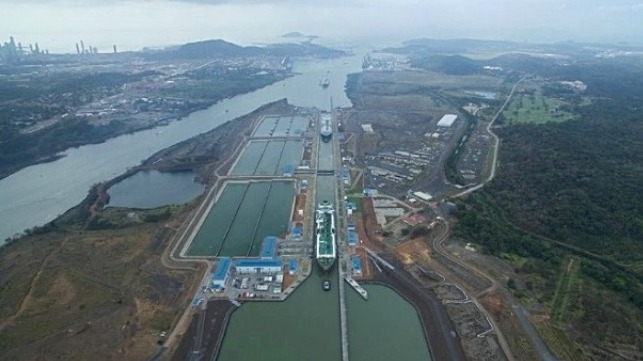Panama Canal Plans New Megaproject to Solve Water Supply Problems

Water supply issues have plagued the Panama Canal for years. When rainfall is limited and nearby lakes begin to get low, the Panama Canal Authority (ACP) has to implement draft restrictions in order to keep the canal running, limiting the amount of cargo vessels may carry across the canal. Now, just four years after the completion of the gigantic Expanded Canal initiative, the ACP is soliciting bids from international engineering firms for a new megaproject: a comprehensive water management system that would improve the functioning of the canal and secure the nation's drinking water supply at the same time.
The ACP considers the project a "critical priority." The Panama Canal watershed had its fifth-driest year in 70 years in 2019, which reduced water levels at Gatun and Alhajuela Lakes, the main sources of water for both the canal and for half of Panama's population. Despite water conservation measures, levels were projected to drop below operational levels - an unprecedented development. In response, the ACP implemented a "fresh water charge," which has had the desired effect and helped it to normalize its draft level.

that matters most
Get the latest maritime news delivered to your inbox daily.
For a permanent solution, on Monday the ACP started a pre-qualification process for selecting an EPC contractor for the design and construction of a comprehensive water management system. The envisioned waterworks must be adequate to guarantee the adequate supply of water for both the canal and the nearby population for at least 50 years in the future. The Panama Canal plans to shortlist the most-qualified firms by the end of year, and each pre-selected bidder will be invited to submit their proposal.
“Securing sustained, operational water levels is paramount for the long-term viability of the Panama Canal. The historically low levels of water in the recent years only exacerbated the need to adopt a comprehensive plan,” said Panama Canal Administrator Ricaurte Vásquez. “As the Canal’s largest investment since the Expanded Canal in 2016, I am confident this move will safeguard the waterway’s future as one of the most important hubs for global commerce."
